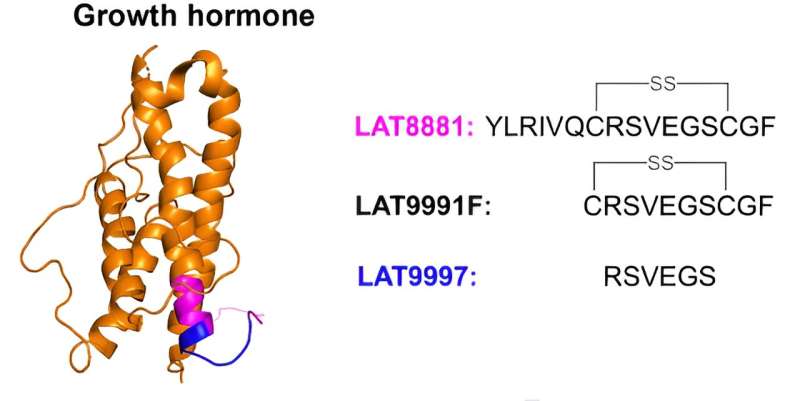This article has been reviewed according to Science X's editorial process and policies. Editors have highlighted the following attributes while ensuring the content's credibility:
fact-checked
peer-reviewed publication
trusted source
proofread
Controlling inflammation to conquer lung infection

The latest studies at Hudson Institute of Medical Research have identified a novel therapy that controls the body's response to the influenza virus, limiting damaging inflammation and promoting recovery from severe infection.
A team led by Associate Professor Michelle Tate, working with Melbourne-based Lateral Pharma Pty Ltd, has published its findings in the Journal of Infectious Diseases, showing the compound LAT9997 limits viral burden and characteristic features of severe influenza, including hyperinflammation and lung damage.
Tate said a characteristic of severe lung conditions from flu to COVID-19 and pneumonia is the damage that hyperinflammation does to the lungs. "Unlike current antiviral drugs that act on the virus itself, this compound mimics a natural protein found in our body and acts directly on the cells in the lung to protect them from damage and cell death.
"The immune system can overreact, which causes damage to the airways—the lung becomes leaky and fluid enters," she said. "We have identified a new therapy which limits lung damage and the ability of the virus to replicate in the lung."
LAT9997 is a 6 amino acid peptide that mimics a part of a protein in our body called growth hormone. Short, linear peptides like LAT9997 are also favorable as they are generally not complex to manufacture.
Understanding influenza: Unraveling lung inflammation
The influenza virus infects cells lining the respiratory tract, causing inflammation, leading to symptoms including coughing, congestion, and difficulty breathing.
In some cases, flu can also lead to more severe respiratory complications, such as pneumonia, bronchitis, and acute respiratory distress syndrome (ARDS). These conditions can be life-threatening, especially in vulnerable populations.
"The human body uses inflammation in many positive ways, to keep us healthy," Tate said. "But when inflammation goes into overdrive it can get out of control and cause enormous damage, particularly to delicate organs such as the lungs.
"The search is always on for treatment options that can fine-tune the inflammatory response, to strike a balance between inflammation which can be protective or damaging."
COVID-19 has shown us the damage that can be done by out-of-control inflammation, and it is a similar story for flu.
"We urgently need new drugs for influenza and emerging respiratory viruses. These results support the potential for Lateral's novel compounds to help patients with severe respiratory disease."
With these impressive pre-clinical results under their belt, Tate and Lateral are looking to better understand how these treatments protect the lung in order to identify markers of its activity, which can be used in a clinical trial.
Preparing for future pandemics
And the benefits can be felt far beyond just treating existing strains of flu. Tate is at the forefront of calls for greater preparedness for future pandemics.
"It's hard to predict exactly what the next pandemic virus will be," she said. "COVID-19 was unexpected, but I think the next pandemic will most likely be a form of bird flu.
"Highly pathogenic influenza viruses currently circulate in wild birds and they have infected humans with mortality rates as high as 60%. It is only a matter of time until bird flu acquires the ability to spread through our community.
"We actually don't have any effective drugs available that we can use to limit flu deaths. We would have to make a new vaccine, which would take time, so we really need drugs that we can use to treat the disease in the time between when the pandemic starts, and when a vaccine is ready."
More information: Alison C West et al, Harnessing Endogenous Peptide Compounds as Potential Therapeutics for Severe Influenza, The Journal of Infectious Diseases (2023). DOI: 10.1093/infdis/jiad566





















